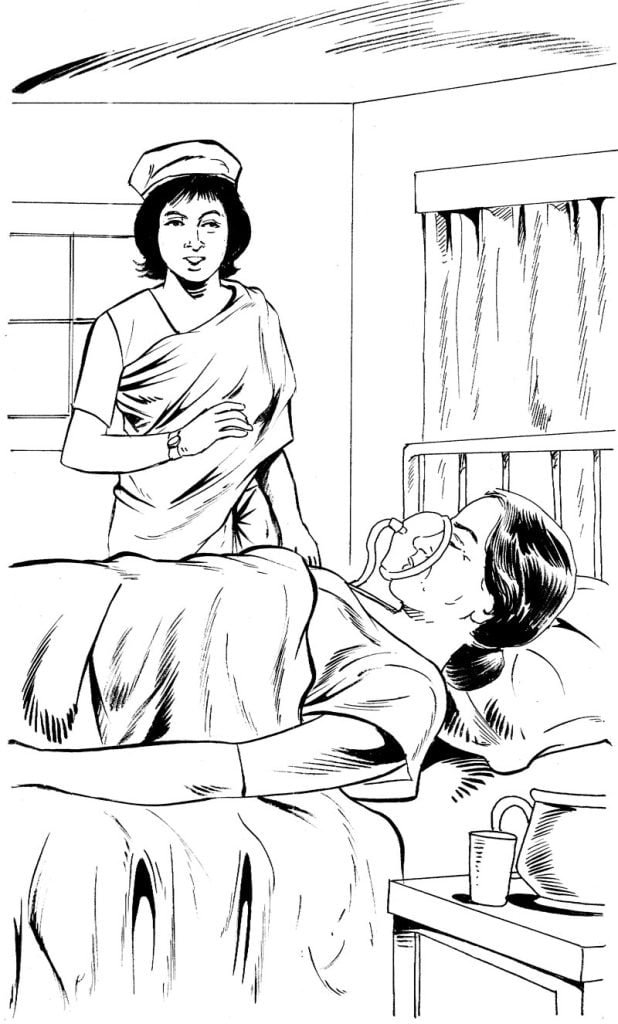What always troubled Sarojini was the fear of disharmony between Hindu and Muslims. She always urged Muslims to consider themselves sons of the soil and banish fears of injustice by the majority. She wanted Hindus and Muslims to live like brothers.
In March, 1942 Cripps Mission arrived in India. Its aim was to explore the possibilities of the formation of Interim Government in India. The freedom struggle of India was reaching the decisive stage.
On 8th August, 1942 in the historic Bombay Session of Congress Gandhiji gave a call to the nation while declaring before a crowd of 30,000 people to deal the final blow to the colonial rule.
He thundered ‘British! Quit India!’ and to the countrymen he said ‘Do or Die’.
In the very morning of the next day all the Congress leaders were arrested one after another. Sarojini, Gandhiji, Kasturba, Pyarelal, Meera Ben and Mahadev Desai were kept in Poona’s Agha Khan Palace under house arrest. Jawaharlal, Abul Kalam Azad and other leaders were taken to Ahmadnagar fort.
This time jail proved very unhealthy for Sarojini Naidu. She fell ill. The worried authorities released her without any condition on 21st March, 1943.
By June, 1945 all the other leaders were also freed one by one over the period of time on various grounds.
India’s freedom case had now become very strong. The British knew that they could not deny India liberty any longer. They were now exploring the modalities of the transfer of power to Indians. For this very purpose the Viceroy called ‘Simla Conference’.
Mohammad Ali Jinnah had now accepted the ‘two nation theory’ as the only solution to the problems of Muslims. His demand for a separate nation for Muslims had firmed up in his mind.
The die was thus cast.
But Gandhiji accepted nothing but one whole secular India. He was not ready to buy any other format for independent India. The British were too eager to accede to the demand of Jinnah because it was their own original idea to weaken India.
Hence in August, 1947 Pakistan was carved out of erstwhile India and the two nations called Bharat and Pakistan were born.
Pakistan was granted freedom on 14 August, 1947. And India was declared a free nation on 15th August 1947 under the premiership of Jawaharlal Nehru.
Nehru persuaded Lord Mountbaton to stay on as Governor General of India for a period to help in governance.
Jawaharlal Nehru appointed Sarojini Naidu as the governor of U.P. the largest state of India on the very same day.
In swearing in ceremony of Sarojini Naidu prayers were said in the traditions of all faiths namely Hindu, Muslim, Sikh, Buddhism, Jainism and Christian.
Sarojini spoke, ‘O free nations of the world! On this day of our independence we pray for your future independence. Our struggle has been historic and it continued for a long time which claimed several lives. It was a dramatic confrontation. It was the battle fought by crores of unsung anonymous heroes. This struggle was the battle of women who became powers themselves they used to pray to. It was the struggle of the youth who turned into tornados…this was the struggle of youth, old, rich, poor, educated, illiterate, sick, untouchable, lepers and saints.
We have risen from the ashes of miseries.
Nations of the world! In the name of India I salute you, in the name of mother…the mother whose roof is made of snow, the walls are formed by living seas, the doors of which are always open for you. I give to the entire world the freedom of India, which never died in the past, shall not die in future and eventually lead the world into the direction of the permanent peace.’
In her tenure as the governor U.P. became a cultural garden. All the people loved and respected her.
Then, came that fateful day of 30th January, 1948. The father of the nation and the guru of Sarojini Naidu, Mahatma Gandhi was shot dead by a misguided youth.

The nation was plunged in grief.
Sarojini Naidu heart bled. She wrote a tribute to the departed saint—
‘He who was messiah of peace,
Was taken to the cremation ground,
With all the honours
Due to a great military general.
Of all the commanders of battle fields
He was the greatest one,
That little dwarf
Far braver and the greatest victor’.
The departure of Gandhiji left a great vacuum that no poem could fill for Sarojini Naidu.

